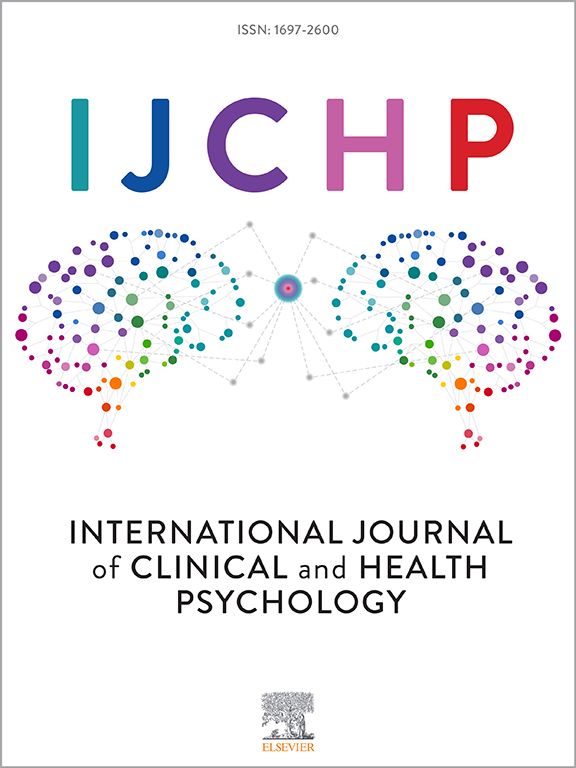Impact of extreme physical exercise (28 consecutive marathons) on sleep time and structure
IF 4.4
1区 心理学
Q1 PSYCHOLOGY, CLINICAL
International Journal of Clinical and Health Psychology
Pub Date : 2025-04-01
DOI:10.1016/j.ijchp.2025.100586
引用次数: 0
Abstract
Objective
It is known that physical exercise influences sleep, however, the effect in extreme sporting conditions has been less studied. We analyzed the sleep quality and duration of an athlete who ran 28 consecutive marathons (one per day).
Methods
We evaluated with three polysomnography recordings to explore the sleep-dependent recovery process: Post-marathons, partial recovery, and baseline.
Results
The participant reported a low sleep quality during the challenge, along with short sleep time, several awakenings, and daytime sleepiness. We observed differences in sleep duration, quality, and distribution in all variables evaluated through polysomnography. From baseline to the final condition after the physical test, we observed a progressive decrease in sleep time and sleep efficiency. In addition, we observed an increase in sleep onset and REM sleep latencies, a 45.8 % increase in slow wave sleep, which affects the complete sleep structure after physical exertion. REM decreased by up to 14.4 % because of intense and continuous physical exercise, and with respect to SWS (38.5 %) this represents an increase in SWS of 267 % with respect to REM.
Conclusion
sleep is affected by high-intensity physical exercise and is modulated by the recovery process. The results of this study highlight the importance of SWS in the recovery from physical fatigue due to the effect of extreme physical exercise, which is demonstrated by the enormous increase in SWS that accounts for almost 40 % of the Total Sleep Time, surpassing even the stage 2 percentage. It is also shown that REM sleep has no role in the recovery from physical fatigue, as it is in fact considerably decreased by the effect of extreme physical exercise. Previous studies had not reported results with these magnitudes.
极限体育锻炼(连续28次马拉松)对睡眠时间和结构的影响
目的:众所周知,体育锻炼会影响睡眠,然而,在极端运动条件下的影响研究较少。我们分析了一位连续跑了28次马拉松(每天一次)的运动员的睡眠质量和持续时间。方法采用三种多导睡眠图记录来探讨睡眠依赖性恢复过程:马拉松后、部分恢复和基线。结果参与者报告在挑战期间睡眠质量较低,睡眠时间短,多次醒来,白天嗜睡。我们观察到通过多导睡眠图评估的所有变量在睡眠持续时间、质量和分布上的差异。从基线到体能测试后的最终状态,我们观察到睡眠时间和睡眠效率的逐渐减少。此外,我们观察到睡眠开始和快速眼动睡眠潜伏期增加,慢波睡眠增加45.8%,这影响了体力消耗后的完整睡眠结构。由于高强度和持续的体育锻炼,REM减少了14.4%,而相对于REM, SWS(38.5%)增加了267%。结论:高强度体育锻炼影响睡眠,并受恢复过程调节。本研究的结果强调了SWS在极端体育锻炼引起的身体疲劳恢复中的重要性,这一点可以从SWS的大幅增加中得到证明,SWS几乎占总睡眠时间的40%,甚至超过了第二阶段的百分比。研究还表明,快速眼动睡眠对身体疲劳的恢复没有作用,因为事实上,剧烈的体育锻炼会大大降低快速眼动睡眠的效果。以前的研究没有报道过这样的结果。
本文章由计算机程序翻译,如有差异,请以英文原文为准。
求助全文
约1分钟内获得全文
求助全文
来源期刊

International Journal of Clinical and Health Psychology
PSYCHOLOGY, CLINICAL-
CiteScore
10.70
自引率
5.70%
发文量
38
审稿时长
33 days
期刊介绍:
The International Journal of Clinical and Health Psychology is dedicated to publishing manuscripts with a strong emphasis on both basic and applied research, encompassing experimental, clinical, and theoretical contributions that advance the fields of Clinical and Health Psychology. With a focus on four core domains—clinical psychology and psychotherapy, psychopathology, health psychology, and clinical neurosciences—the IJCHP seeks to provide a comprehensive platform for scholarly discourse and innovation. The journal accepts Original Articles (empirical studies) and Review Articles. Manuscripts submitted to IJCHP should be original and not previously published or under consideration elsewhere. All signing authors must unanimously agree on the submitted version of the manuscript. By submitting their work, authors agree to transfer their copyrights to the Journal for the duration of the editorial process.
 求助内容:
求助内容: 应助结果提醒方式:
应助结果提醒方式:


